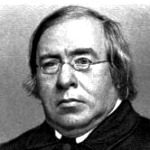Quotes about Eschatology-Judgment-Believers
In the day that we stand before our Master and Maker, it will not matter how many people on earth knew our name, how many called us great, and how many considered us fools. It will not matter whether schools and hospitals were named after us, whether our estate was large or small, whether our funeral drew ten thousand or no one. It will not matter what the newspapers or history books said or didn’t say. What will matter is one thing and one thing only – what the Master thinks of us.
And so in the judgment day, the inquiry will be made not into our opinions or professions alone, but into our deeds, as proving the correctness of our faith and the sincerity of our professions.
There is a proper role for what theologians call subjective guilt (how I feel). This feeling of remorse for wrong is a result of the Holy Spirit revealing our sin to our consciences (this we call “conviction”). However, amid our feelings of remorse we must remember that our objective guilt (the judgment that God imposes for our sin) has been entirely satisfied by Christ (Eph. 2:14-16; Col. 1:19-20).
The Power of Mercy by Bryan Chapell taken from Holiness by Grace by Bryan Chapell, copyright 2001, Crossway Books, a division of Good News Publishers, Wheaton Illinois 60187, www.crosswaybooks.org. Page 189.
The books are shut now, but they will be opened then. The things we have done in the body will come back to us, whether good or bad. Every pious thought, and every thought of sin; every secret prayer, and every secret curse; every unknown deed of charity, and every hidden deed of selfishness: we see them all again; and though we have not remembered them for years, and perhaps have forgotten them altogether, we shall have to acknowledge that they are our own, and take them to ourselves.
How great an honor will it be to a person to have God at the day of judgment owning a person, declaring before all men, angels and devils that that person is before His all-seeing eyes and that he stands innocent and perfect in His sight, clothed with perfect righteousness and entitled to everlasting glory and blessedness. How honorable will this render them in the eyes of all that vast assembly that will be together at the day of judgment. That will be an infinitely greater honor than any man or any angel declaring that they judge him upright and sincere and that eternal life belongs to him. What can be a greater honor than this — to be owned by the great King and Lord of all things?
Judgment seat translates bema, which, in its simplest definition, describes a place reached by steps, or a platform. The Septuagint (the Greek translation of the Old Testament) uses it that way in Nehemiah 8:4. In Greek culture bema referred to the elevated platform on which victorious athletes received their crowns, much like the medal stand in the modern Olympic games. In the New Testament it was used on the judgment seats of Pilate (Matt. 27:19; John 19:13), Herod (Acts 12:21), and Festus (Acts 25:6, 10, 17). There was also a bema at Corinth, where unbelieving Jews unsuccessfully accused Paul before the Roman proconsul Gallio (Acts 18:12, 16, 17). A person was brought before a bema to have his or her deeds examined, in a judicial sense for indictment or exoneration, or for the purpose of recognizing and rewarding some achievement. Writing to the Romans of this same event, Paul described it as “the judgment seat [bema] of God” (Rom 14:10). God the Father is the ultimate Judge, but He has “given all judgment to the Son” (John 5:22).
Believers will not be judged for sin at the judgment seat of Christ. Every sin of every believer was judged at the Cross, when God “made Him who knew no sin to be sin on our behalf, so that we might become the righteousness of God in Him” (2 Cor. 5:21). At the cross “Christ redeemed us from the curse of the Law, having become a curse for us” (Gal. 3:13). As our substitute, “He Himself bore our sins in His body on the cross, so that we might die to sin and live to righteousness” (1 Peter 2:24); “He, having offered one sacrifice for sins for all time, sat down at the right hand of God” (Heb. 10:12; cf. Eph. 1:7;4:32; 1 John 2:1-2). Because of His atoning sacrifice on our behalf, “There is now no condemnation for those who are in Christ Jesus… Who is the one who condemns? Christ Jesus is He who died, yes, rather who was raised, who is at the right hand of God, who also intercedes for us “(Rom. 8:1,34). But though salvation is not by works, works are the inevitable result of true salvation.
In that day, the full truth about their lives, character, and deeds will be made clear to each believer. Each will discover the real verdict on his or her ministry, service, and motives. All hypocrisy and pretense will be stripped away; all temporal matters with no eternal significance will vanish like wood, hay, and stubble, and only what is to be rewarded as eternally valuable will be left.
In that day when we stand before the judgment seat of Christ, the whole “edifice” of our earthly works will be tested by the fire of God. Some impressive superstructures will be reduced to rubble, because they are built only for show – not out of lasting material. Like sets on a movie lot, these “buildings” may be magnificent and appear genuine even on close inspection, but the fire will test them for what they are really made of, not for what they look like. All the wood, hay and stubble will be burned away.
New Jerusalem taken from The Glory of Heaven by John MacArthur, copyright 1996, Crossway Books, a division of Good News Publishers, Wheaton Illinois, 60187, www.crosswaybooks.org, page 101.
When the day of recompense comes, our only regret will be that we have done so little for Him, not that we have done too much.
The Autobiography of George Muller, 1984, p. 225-226. All quotations taken from books published by Whitaker House are used with permission of the publisher. Whitaker House books are available at Christian bookstores everywhere. Get this book!
There is a judgment before us all. Words have no meaning in the Bible, if there is none. It is mere trifling with Scripture to deny it. There is a judgment before us according to our works – certain, strict, and unavoidable. High or low, rich or poor, learned or unlearned, we shall all have to stand at the bar of God and to receive our eternal sentence. There will be no escape. Concealment will be impossible. We and God must at last meet face to face. We shall have to render an account of every privilege that was granted to us, and of every ray of light that we enjoyed. We shall find that we are dealt with as accountable and responsible creatures, and that to whomsoever much is given, of them much will be required.
Evidence, evidence, evidence, will be the one thing wanted when the great white throne is set, when the books are opened, when the graves give up their tenants, when the dead are arraigned before the bar of God. Without some evidence that our faith in Christ was real and genuine, we shall only rise again to be condemned. I can find no evidence that will be admitted in that day, except sanctification. The question will not be how we talked and what we professed, but how we lived and what we did. Let no man deceive himself on this point. If anything is certain about the future, it is certain that there will be a judgment; and if anything is certain about judgment, it is certain that men’s “works” and “doings” will be considered and examined in it (Jn. 5:29; 2 Cor. 5:10; Rev. 20:13). He that supposes works are of no importance, because they cannot justify us, is a very ignorant Christian. Unless he opens his eyes, he will find to his cost that if he comes to the bar of God without some evidence of grace, he had better never have been born.
[A believer’s judgment is] not penal, but retributive, not a declaration of doom, but an assessment of worth; eternal destiny not at issue; eternal reward is; an evaluation of faithfulness and service within God’s family; this judgment does not determine entrance into the kingdom, but rather the status of those already admitted.
Individual Eschatology, November 8, 2006, www.enjoyinggodministries.com. Used by Permission.








